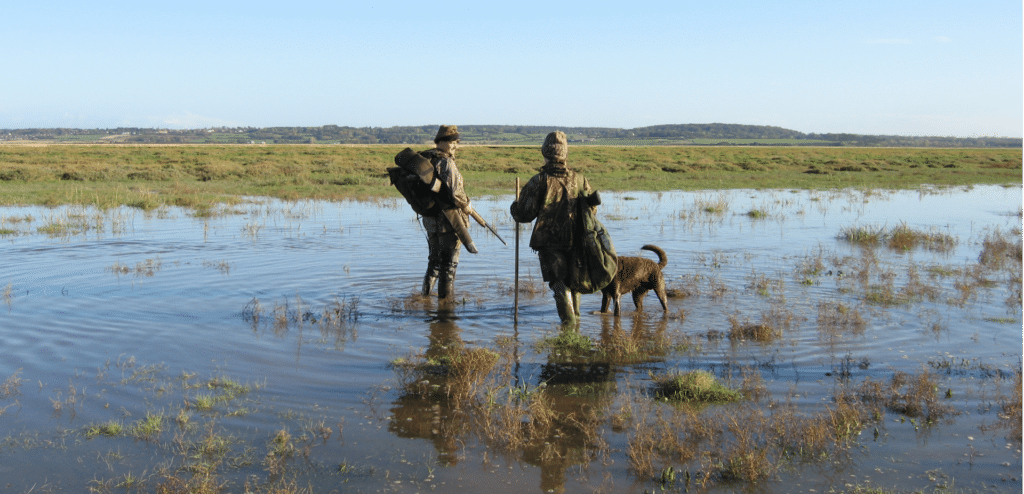Shooting language matters

Gethin Jones
“Your words have power use them wisely.” Anonymous
Choose your words carefully
When we speak or write about what is important to us and wish to communicate clearly with others, the words we choose to use are of vital importance. This is as true when we communicate with others who enjoy shooting sports as it is when we converse in public or when posting on social media.
The words we use amongst ourselves as shooters not only have their own meaning but also have their own connotations. Equally, they can have alternative implications and historical ‘baggage’.
Sometimes they may even have entirely different meanings to people outside the world of shooting sports who may be unaccustomed to the specific contexts in which we use our words.
Replacing vermin
The use of certain words will almost certainly guarantee that someone, somewhere will take offence. In an age of instant global communication, people are also quick to point out that such-and-such a word should not be used in any context as it is outdated or even disrespectful.
‘Vermin’ is a perfect example of a word that is frowned upon nowadays, even among shooters. It is thought of by many, but certainly not all, as dated and even derogatory when used to describe animals such as foxes or crows.
A recent tweet by Patrick Galbraith, Editor of the Shooting Times, requested that those controlling foxes, corvids and rats avoid using the term altogether. He appealed for it to be replaced it with ‘predator’ wherever possible. The tweet, not surprisingly, generated a stream of impassioned replies both for and against the suggestion.
Falling out of favour
Other words which may be falling out of favour include ‘pest’ and ‘cull’. That said, in many circumstances it’s difficult to think of an alternative term which everyone would be happy to use and which cannot be misconstrued.
Interestingly, having read through the general licences for Wales on the Natural Resources Wales website, I notice that neither ‘pest’ nor ‘cull’ make a single appearance.
Game and gamebirds
Even words commonly used by shooters which are more nuanced may nevertheless create ripples of displeasure outside the shooting community.
Take the apparently neutral word ‘game’ for example. For shooters, this word is used to refer to a range of species, comprising a number of birds and mammals, which are quarry traditionally pursued in Britain for food or sport.
If I think of the word ‘game’, the first species which spring to my mind in no particular order are pheasants, hares, grouse and partridge.
Snipe and woodcock are also classed as ‘gamebirds’ despite being waders and not biologically related to pheasants or grouse, which are gallinaceous birds, to use the scientific as opposed to the sporting term.
Fanatical objections
If we look at the wider world of fieldsports in Britain, then ‘game’ may also be used to refer to ‘game fish’ – salmon, trout and char – the pursuit of which with rod and line is known as ‘game fishing’.
Now I don’t think for one minute that anyone who enjoys shooting or fishing uses the word ‘game’ in a provocative or confrontational way. However, there are certain people, mainly those who are strongly opposed to shooting and other field sports, for whom the words ‘game’ and ‘gamebird’, in particular, causes untold consternation.
These opponents of shooting not only bear a grudge against our activities but also harbour objections to the very words we use. Their objections can verge on the fanatical.
‘Gamebirds’, they will argue, is an outdated and demeaning term denoting possession of these wildlife species by none other than the landed gentry.
They argue that the very word ‘game’ is based on ownership rather than science. A word which in their minds at least, will forever be associated with Tweed-clad 19th century gamekeepers (another word they can’t abide), enormous shooting estates, downtrodden peasants and toffs. In short, a word to be banned.
A legal term
However, the word ‘game’ is not only a commonly used word or prefix but is also an important legal term which is fully enshrined in UK law. The Game Act 1831 to this day regulates everything from the official definition of ‘game’ to its taking, killing, possession and sale.
Whole rafts of legislation would have to be changed, at eyewatering expense to the taxpayer, should it ever be decided that the legal term ‘game’ was to be made redundant.
Is ‘game’ really such a contentious word? None other than the RSPB is happy to use the term ‘gamebird’ in an official context, most recently when the organisation carried out its Gamebird Shooting Review in 2020.
‘Vermin’ is also a word which is used in law and has its own specific legal meaning. Just ask anyone who shoots a rifle and has a variation on their Firearms Certificate allowing them to shoot foxes, rabbits or corvids. Do opponents of these terms really wish that everyone would change their vocabulary to pander to their whims?

Boot on the other foot
The lexical boot can often be on the other foot, however, with anti-shooting campaigners dropping phrases like ‘shooting for fun’ and ‘casual killing’ into their rhetoric and campaign literature.
Surely if those who object to shooting are allowed to be offended and question the legitimacy of certain words, are we not entitled to do the same?
‘Casual killing’ is a phrase used with reference to the general licences which allow for the lethal control of certain bird species when they come into conflict with our activities.
This highly emotive phrase is deliberately employed to generate support. This is often in the form of hard cash, for activist groups such as Wild Justice. It creates the impression that the lethal control of corvids is something which is carried out unthinkingly and to excess with scant regard for the welfare of the birds being controlled. Of course, nothing is further from the truth, but coffers need to be filled.
Evolving a living language
I’m absolutely fine with reviewing the words we use from time to time, their application in certain circumstances, meanings and connotations. A living language has to evolve.
Certain words can and do fall out of favour and can easily be replaced with other, more neutral, words when required. However, we need to be very careful that we do not needlessly discard words simply on a whim or to avoid causing offence. This is often little more than faux outrage.
Without doubt it is of vital importance to choose one’s words carefully when discussing a subject as emotionally charged as shooting. This is the case whether you are passionately in favour or vehemently against.
Word preservation
However, one must not without very good reason acquiesce to the abolition of certain words purely on the grounds that certain people claim that they are offended by them.
After all, who actually decides which words are appropriate to use and which are not? And who gave those individuals or amorphous groups the right to decide such things on everyone’s behalf in the first place?
Without conjuring up too many Orwellian images of 1984, the Thought Police or Doublespeak, we should be just as careful with those words we choose to use as with those we choose to throw away.
Once those words are gone, we may never get them back.
Want to read more like this?
Head to our Offbeat pages for more opinions and insight.
